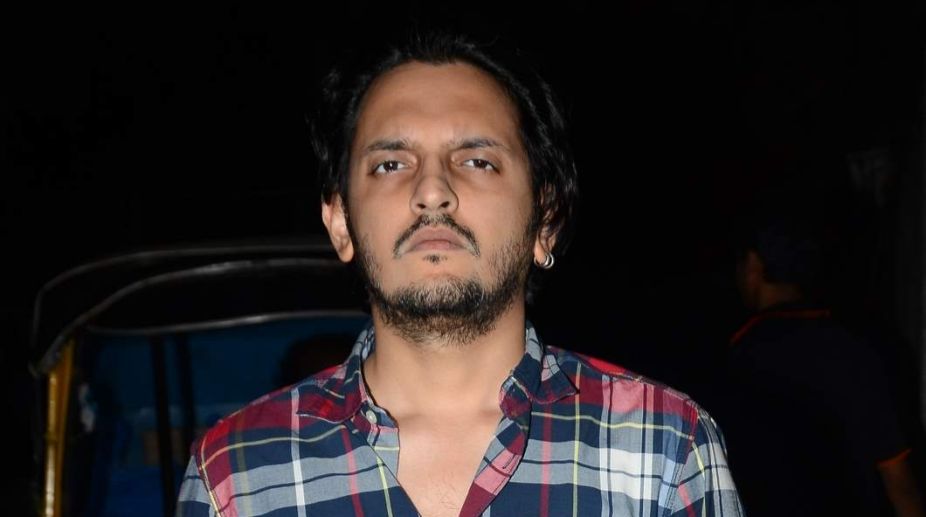Emraan Hashmi breaks silence on Javed Shaikh’s accusations of rude behaviour during ‘Jannat’
Emraan Hashmi responds to Javed Shaikh's allegations of him being rude during the filming of the 2008 hit, 'Jannat.'

Vishesh Bhatt (Photo Credits: IANS)
Mukesh Bhatts son Vishesh made his directorial debut with Murder 3 in 2013 but then focussed more on production. He says his father has brought back the passion in him to direct a film and he will get back on the directors chair next year.
While he is at it putting together “content-driven” projects together with various filmmakers and writers, Vishesh said, “I want to finalise a subject that challenges and excites me to get out and film.
Advertisement
“I have stumbled upon a few good subjects and I am weighing them. I am being encouraged by my peers and my father to direct and I will be seen doing it mostly by 2018-19,” he added.
Advertisement
Vishesh has produced films like Gangster, Jannat: In Search of Heaven…, Mr X, Raaz Reboot and Begum Jaan.
On his future projects, he said: “My dad and my uncle (Mahesh Bhatt) are focusing on the ‘Sadak’ sequel. I am in conversation vis-a-vis two film projects and it is very early for me to announce them. But very soon in 2018 these projects will be going on floor.
“There will be feature films, digital films and a couple of web series which will go under production at my end in 2018-19.”
He looks after strategy, content development, creative and digital initiatives at Vishesh Films — which Mukesh Bhatt co-owns with his brother Mahesh Bhatt. The banner launched actors like Rohit Roy, Anu Aggarwal and John Abraham.
Talking about the banner’s business plan, Vishesh said: “A new division of the company is going to focus a lot more on digital content that connects with my generation more.
“The kind of content which travels well, has more sophisticated appeal to it and is high concept in nature. The audience would be the age group below 35 years.
“With the coming of the internet through mobile devices, the audience has become more global in their approach. With Netflix and Amazon coming to India, people are more exposed to a variety of content conveniently. I want to create new genres of content in India as well.”
Vishesh feels the content of Bollywood has changed in “no different way than the pace at which mobile connectivity has come in”.
“The content has evolved and become more urbanised. There has been deeper focus on writers, screenplays and concepts. Also, one positive is we still keep music as a part of our films while saying relevant stories. Now the music blends well into the story compared to earlier times.
“A lot of the content has become more impactful in execution and is being well appreciated by the audience across platforms.
“It is no longer being driven on a set star cast and formula. Everyone is feeling challenged now about the content they need to put out and this new change has brought about a lot of filmmakers and story writers.”
But Vishesh still feels Indian cinema “need more story-tellers and a lot more talent to represent this content”.
He also warned: “The market forces here are frustratingly slow and lack the skills or ability to take ambitious risks with new content and talent to better serve the audience’s choices.
“Their timidity is going to be disastrous for Indian creators in the face of content dumping by the US.
“Our indigenous talent also needs much better encouragement and appreciation from both the media and the government. We need many more theatres and protections for our creative ideas.”
Advertisement
Emraan Hashmi responds to Javed Shaikh's allegations of him being rude during the filming of the 2008 hit, 'Jannat.'
A policeman, posing as an actress on social media, lured Manoj to come all the way from Mumbai to meet him (as his lady love) in South Delhi as per a pre-planned operation which ended in his arrest, the police said on Friday.
A gangster on the run for five years has landed in the Delhi Police Crime Branch's net. He is involved in various crimes, including extortion and abduction, and faces several cases under the Arms Act and Maharashtra Control of Organised Crime Act (MCOCA), it was learnt on Wednesday.
Advertisement
